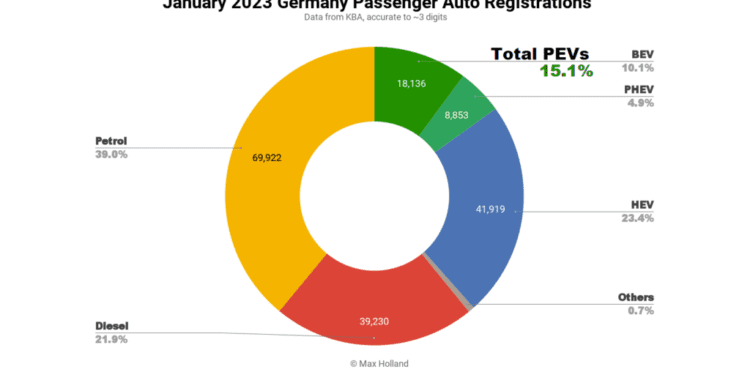The Volkswagen Group’s plan to go all electric by 2033 in the EU has been met with some resistance from German drivers and BMW. After agreeing to the EU regulation to ban internal combustion light vehicles by 2035, the FDP, the smallest member of the German governing coalition, is now attempting to walk back its agreement. This European law is part of the European Green Deal, and the FDP wants to require that biofuel-powered vehicles be exempt.
The reality is that the complete EU light vehicle market will transition to fully electric vehicles well before 2035, and there is likely zero benefit to the German car industry if the EU gives in to this demand. The only people who doubt it are some car-industry dinosauria, like in BMW’s top management, and those who are afraid of change and allergic to the thought of EU regulations hurting their car industry.
Italy, Poland, and Bulgaria are also opposed to the new regulation, but with Germany voting for the new law, there is a qualified majority to adopt the law. It is likely that these countries are afraid that fully electric cars will stay too expensive for large parts of their populations. However, with models like the Romanian Dacia Spring, some Chinese models, and the just announced Tesla plans, we can expect a significant reduction in electric car price in the coming years.
My advice to the EU would be to not give in to this small party’s demands. It will be an empty promise, and the invisible hand of the market can correct this loophole easily. It is incomprehensible that a serious German party can take such big risks with the climate and their own reputation for some cheap and nonsensical election rhetoric.
FAQ
Q1. How electric car chargers work?
A1. Electric car chargers work by connecting to an electrical outlet and providing power to the car’s battery. The charger then converts the electricity into a form that the car’s battery can use.
Q2. What electric car has the longest range?
A2. The Tesla Model S has the longest range of any electric car currently on the market, with a range of up to 370 miles on a single charge.
Q3. How electric car batteries are recycled?
A3. Electric car batteries are recycled by breaking them down into their component parts and then separating out the metals, plastics, and other materials for reuse. The metals are melted down and reused in new products, while the plastics and other materials are recycled into new products.








